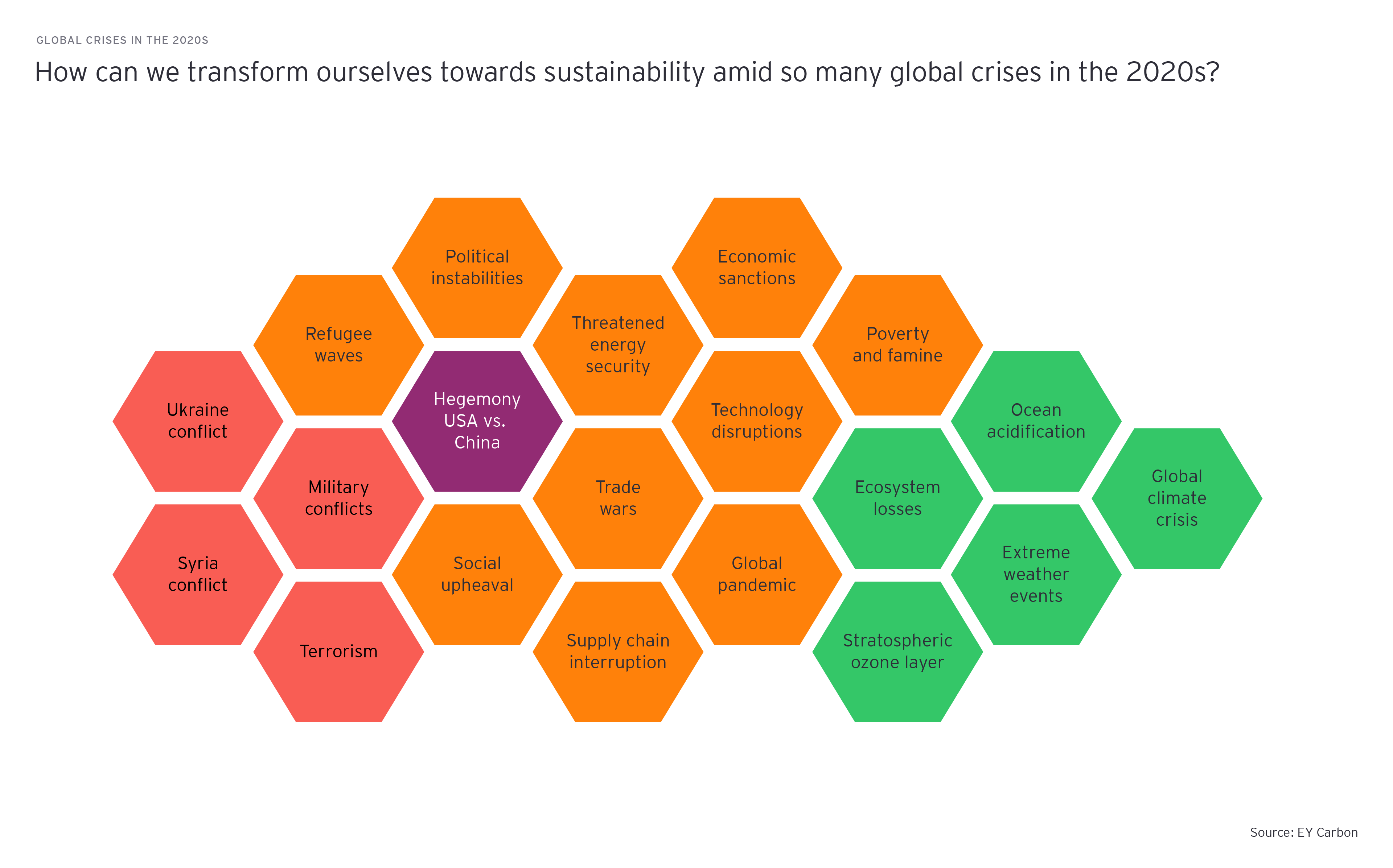EY as the leading professional service provider in the field of corporate sustainability offers help to its clients navigate disruption with agility to reduce risk, stay competitive in the market and help generate long-term value. Our Enterprise Resilience solution helps organizations reshape the business for the future by creating an integrated effort across the C-suite that considers your customers, people, processes, technology and ecosystems (facilities, suppliers, external parties, etc.) to:
- Anticipate disruption and turn risk into opportunity
- Continuously adapt the business during times of change
- Help minimize disruption and impact to critical business services
The EY Megatrends framework exposes business leaders to trends and forces far outside their usual scope of analysis, reducing the risk of missing out on, or being sidelined by, the “next big thing.” Decarbonization, techonomic cold war, and behavioral economy are some examples of well-known megatrends – the list of which is affected by primary forces, such as technology, demographics, globalization and environment. Future working worlds will be determined by the changing global order and at all levels – societies and economies, organizations and markets, as well as households and individuals. The above-mentioned global crises come into this picture both as new and permanent megatrends, primary forces, as well as changes in our global order as we knew it.
A flexible future-back planning approach continues to be paramount for corporates working on shifting and slippery grounds, as it works to reveal the forces affecting their organization, allowing them to make the best choices and maximize stakeholder value. However, as a multi-crises future is much more challenging to predict and anticipate, future-back planning needs to become more sophisticated by incorporating all the physical and transition risks and opportunities that arise from these crises. It also means to incorporate a corporate governance that increases the resilience of companies and prevents them from jumping from one firefighting exercise into the next.
Any crisis brings both additional risk – and additional opportunity. This is the core of the expanded concept of risk: No risk without opportunity, but also no opportunity without risk. For example, the ongoing military conflict in Europe triggers activities of Western European countries to re-assess their fossil dependencies. This brings huge opportunity for renewable energy investments all over the continent, as the best solution for cost effectiveness, energy security and environmental sustainability.
New research by the World Economic Forum (WEF) suggests the cost of failure to build resilience to crises is between 1% and 5% of annual global GDP growth. Therefore, companies and countries need to pivot rapidly from reactive risk management to strategic recovery. In May 2022, the WEF launched a new resilience consortium to accelerate collective action across key resilience drivers for the global economy and forge strategies for recovery and growth in face of multiple crises.



